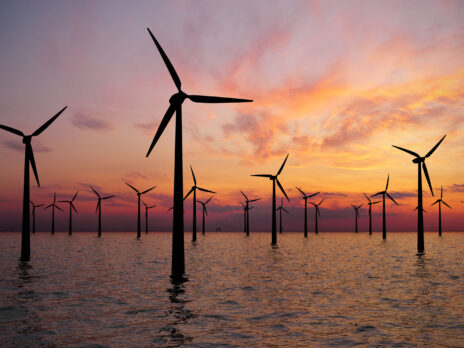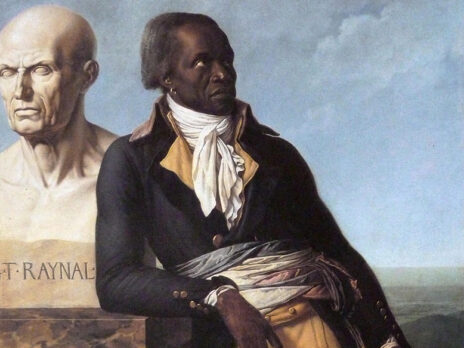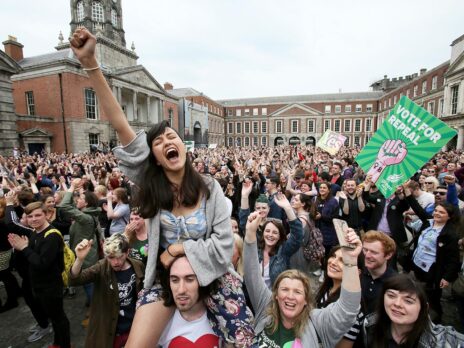
As war rages in Europe, questions inevitably arise about the future of the world order. What kind of settlement will emerge from the conflict in Ukraine? While it is too early to tell, any serious engagement with this question will need first to resolve a more general puzzle known by political scientists as the “problem of order”. How can states that compete with one another create a stable international system and sustain it over time? Today this is no longer just an academic question. Different answers are already helping to inform foreign policy around the globe. The ideas that emerge victorious from the current crisis will therefore play a vital role in shaping the world of tomorrow.
Mainstream thinking in international relations (IR) has long centred on two different schools of thought. The first, neorealism, holds that world order emerges organically from the rational pursuit of self-interest by the most powerful states in the international system. Stability comes from the preservation of a global balance of power and states respecting each other’s spheres of influence. The political scientist John Mearsheimer, a leading scholar in this tradition, has long warned from a realist perspective that US attempts to draw Ukraine closer to Nato risked encroaching on Russia’s security interests and were bound to provoke it into war.
The other school of thought, neoliberal institutionalism, similarly holds that world orders emerge from the rational pursuit of self-interest by powerful states. But instead of raw coercive power, it emphasises the role of international cooperation in establishing a shared set of norms, rules and institutions, which then create a pattern of predictable behaviour in the interactions between states.
In this view, world orders are held together by strong rules underwritten by a global hegemon. A stable system can begin to unravel when these rules are no longer properly enforced or complied with. It is this perspective that underpins much of the thinking in Democratic foreign policy and that guides the Biden administration in its response to the war in Ukraine.
[See also: How the weather shapes history]
The two theoretical frameworks can tell us some useful things about the Ukraine crisis. Neorealism can help account for Vladimir Putin’s power play without resorting to folk psychology (“he has lost his mind”) or cultural essentialism (“he’s just acting like a power-hungry tsar”).
A realist assessment of Russia’s changing security environment can help us see that, behind all the pseudo-historical propaganda and chauvinistic rhetoric, Putin’s aggressive brinkmanship in Ukraine is motivated, at least in part, by long-standing US disregard for Russian security concerns about Nato expansionism on its borders. This does not justify Putin’s actions, but it can help provide insight into the geopolitical dynamics at work.
At the same time, neorealism is less helpful in accounting for Joe Biden’s surprisingly forceful response to Putin’s invasion. Over the past four months, the US and its allies have unleashed unprecedented economic sanctions against Russia, supplied significant amounts of military and financial assistance to Ukraine, and even shared real-time intelligence that has enabled the Ukrainians to kill several Russian generals and sink the Russian flagship in the Black Sea.
These actions have taken Nato to the brink of direct involvement in the war. Why would the White House risk military escalation with a nuclear superpower to defend a country that is neither a member of Nato, nor important to the global balance of power or the US’s national security interests?
The US response makes little sense in light of neorealist theory. It can only be explained through the neoliberal institutionalist perspective that prevails in Democratic foreign policy circles, where Putin’s latest invasion of Ukraine is widely seen as a direct challenge to the “rules-based international order” and to American primacy in European security affairs. Arming the Ukrainian resistance then becomes about much more than defending Ukrainian territory: it is now about preserving the underpinnings of the US-led world order.
[See also: How fear makes us human ]
Simply put, the US government intends to make an example of Putin: the objective, according to Lloyd Austin, the US secretary of defence, is to “weaken Russia” to the point where it can no longer break the rules. “When dictators do not pay a price for their aggression,” said Biden, “they cause more chaos.”
From the neoliberal perspective, then, Putin is waging yesterday’s war: as the autocratic ruler of a declining state, he is staging a desperate last stand to restore the regional order of the past, invoking a bygone era in which Russia was still considered a Great Power and its regional sphere of influence was respected accordingly.
Biden, for his part, seems determined to weaponise the Ukrainian resistance not only to weaken Putin, but also to reinforce his own defences against illiberal challengers both at home and abroad. His end-game is not to shape the future but to preserve the present. As the American political theorist, Francis Fukuyama has put it, “A Russian defeat will make possible a ‘new birth of freedom’, and get us out of our funk about the declining state of global democracy. The spirit of 1989 will live on, thanks to a bunch of brave Ukrainians.”
The problem, however, is that neither of the two mainstream theories can tell us much about the shape of the future world order after the crisis. This is partly because both approaches emerged from a previous era in which the US was still in the ascendant. Neorealism and neoliberal institutionalism are both 20th-century frameworks for a 20th-century world: they were meant to provide an intellectual backbone for US foreign policy at a time of US predominance in international affairs.
Reaching maturity during the postwar decades, realist thinking was developed specifically to account for the behaviour of Great Powers such as the US and the Soviet Union in a context of intense geopolitical rivalry, while neoliberal institutionalism had its heyday in the 1990s following the US triumph in the Cold War. At the time, neither school of thought paid much attention to the economic terrain on which these privileged state actors are forced to operate.
Yet this is precisely where the shortcomings of traditional IR scholarship lie. The two dominant approaches in the field both suffer from what critics call a “statist ontology”: a reductionist world-view which holds that states are the only meaningful actors in international affairs. In reality, world orders are tightly interwoven with world economies. This is why scholars in the adjacent field of international political economy stress the importance of transformations in global capitalism as the true source of changes in the international balance of power.
World-systems thinkers such as the Italian economist Giovanni Arrighi and the American economic historian Immanuel Wallerstein have shown that new world orders only ever arise on the back of sustained economic expansions, before foundering on the rocks of epoch-defining global crises. The most powerful players in these recurring cycles of order and disorder were invariably those able to control the underlying infrastructure of the capitalist world economy.
Just as the Pax Britannica of the “long 19th century” would have been unthinkable without Britain’s coal mines, steamboats, railways, canals, telegraph lines and factories, so the Pax Americana of the “long 20th century” is inseparable from American oil rigs, power lines, highways, airports, military bases, container terminals, telecommunications towers, satellites, fibre optic cables and server farms. Not to mention the complex financial infrastructure that underpins the global financial system and the dollar supremacy that still governs much of international trade.
[See also: The new era of American darkness ]
The question is whether the economic foundations of that US-centred world system still offer a solid basis for long-term stability in international affairs. Can the crumbling infrastructure of the American Century continue to guarantee the survival of the “rules-based international order” that rests on it? Will this infrastructure prove sustainable in light of the financial shocks, economic turmoil and natural disasters that are only bound to intensify as the 21st century progresses?
These are all questions that take us well beyond the conflict in Ukraine. A battle is raging for the future of the world order, this much is certain, but it will be won and lost in a different theatre. Focusing on the battle for the Donbas risks blinding us to the shifts taking place within the world economy.
Even if Ukraine wins the war and Russia is severely weakened in the process, the US is still falling behind on the most important front of the 21st century: the race to lay down the material infrastructure for a new world economy based on electrified transport and clean energy technology. While the US Congress has no difficulty approving a $40bn support bill for Ukraine, Biden’s pared-down Build Back Better Act, which includes crucial provisions for the clean energy transition, remains stalled in the Senate.
Even the $1.2trn Bipartisan Infrastructure Bill passed by Congress in 2021 will be spread out over eight years and mostly focuses on upgrading existing roads, bridges and power grids, reserving only paltry sums for transformative spending on public transport or electric vehicle (EV) charging stations. Now, with Republican candidates surging in the polls ahead of November’s midterm elections, the prospect of visionary public spending becomes even more unlikely.
Compare this to the long-term vision of infrastructural development that is being tested in Beijing. This year alone the Chinese government has committed $2.3trn to new infrastructure projects: 15 times more on an annual basis than the much-touted equivalent legislation in the US. While this amount still includes a lot of spending on traditional concrete and fossil fuel projects, it also reflects a deliberate state-led effort to transform the world’s second-largest economy into a global transportation hub and clean energy powerhouse.
Twenty years ago, China had no high-speed railways; today, its network makes up two-thirds of the world’s total track length, connecting almost every major Chinese city and transporting over 2.2 billion people a year, largely eliminating the need for short-haul domestic flights. The country also leads the world in solar power capacity and installed more offshore wind turbines last year than any other country in the previous five. It produces more than half of the world’s EVs and 70 per cent of its EV batteries, while dominating the global supply chain for the precious metals and rare earth minerals that go into clean energy technologies.
China has invested hundreds of billions of dollars into its flagship Belt and Road Initiative, probably the largest infrastructure project in world history, and seeks to establish greater Chinese control over the choke points along the maritime trade routes of the South China Sea, the Indian Ocean, the Red Sea, the Suez Canal and the Eastern Mediterranean. It has set up the Silk Road Fund and the Asian Infrastructure Investment Bank to finance these projects. By contrast, the US has made no commitments to invest in any new infrastructure projects overseas.
When considering the underlying shifts in the global balance of power, we will need to move the narrative from Europe and examine the transformative changes taking place in the world system as a whole. The world of tomorrow will not be conquered by force in the Donbas, by the realpolitik of Russian tanks, nor will it be decided in New York City by the multilateral deliberations of the UN Security Council. Neither the coercive power of neorealism nor the rules-based cooperation of neoliberal institutionalism have the capacity to create a new world order ex novo. Rather, in light of the challenges posed by the climate crisis and the emerging geopolitical reality of multipolarity, the future belongs to those who manage to lay down the material infrastructure for a sustainable world economy powered by clean energy and designed for shared prosperity.
That battle cannot be won by those who long for the past or those who are content simply to preserve the present. It can only be won by those who are willing to reinvent themselves first, before setting out to remake the world in their image.
[ See also: A new age of global war ]
This article appears in the 29 Jun 2022 issue of the New Statesman, American Darkness





